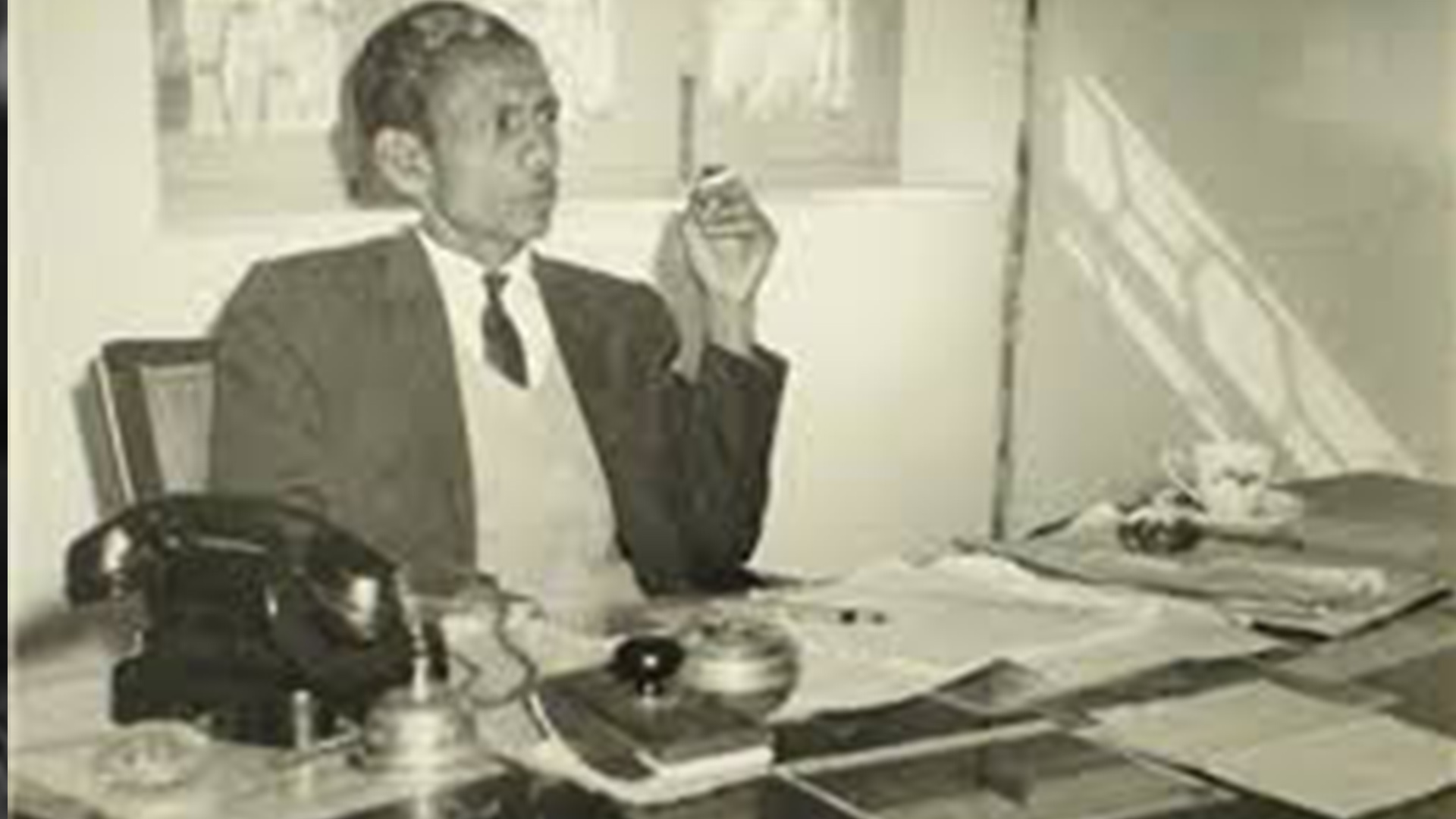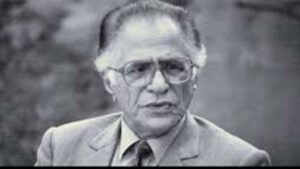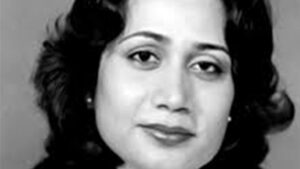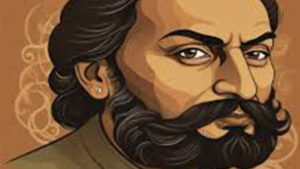Nasir Raza Kazmi (Urdu: سید ناصِر رضا كاظمی) was a distinguished Urdu poet from Pakistan. He was born on 8 December 1925 in Ambala, Punjab, during the British Indian era.
Kazmi’s poetry is celebrated for its simplicity and emotional depth. He skillfully used everyday words such as Chand (moon), Raat (night), Baarish (rain), Mausam (season), Yaad (memory), Tanhai (loneliness), and Darya (river), imbuing them with profound meaning through his poetic expression. He was particularly renowned for his use of chhoti beher (short verses), which added a unique charm and rhythm to his works.
His timeless poetry continues to captivate audiences and has been featured extensively in programs on Pakistan Television (PTV) as well as in Bollywood films in India, highlighting its enduring appeal across borders.
Early life and career
Nasir Raza Kazmi emigrated from Ambala, India, to Lahore, Pakistan, during the Partition in August 1947. In Lahore, he settled in the Krishan Nagar (now Islampura) neighborhood and immersed himself in the city’s literary culture. He served as the editor for prominent literary magazines such as Auraq Nau and Khayal, and later worked as a staff editor for Radio Pakistan, Lahore. While he was often regarded as a melancholic poet, much of his work radiates themes of romantic happiness and hope.
Kazmi drew inspiration from the romantic poetry of Akhtar Sheerani and received mentorship in poetry from Hafeez Hoshiarpuri. He also deeply admired the works of Mir Taqi Mir, whose classical style greatly influenced his own poetic sensibilities.
Published Works
Some of Kazmi’s most notable poetry collections include:
- Berg-i-Nai (1952)
- Deewaan (1972)
- Pehli Baarish (1975)
- Hijr Ki Raat Ka Sitara
- Nishat-i-Khwab (1977)
Reflection on Creativity
In a television interview shortly before his death, Kazmi reflected on the sources of his artistic inspiration:
“Horse riding, hunting, wandering through villages, walking along riversides, and visiting mountains were my favorite pastimes. These experiences nourished my love for nature and brought me closer to poetic expression. All my hobbies are connected to the fine arts—singing, poetry, hunting, chess, a love for birds, and a love for trees. I began writing poetry because I realized that the beauty I saw in nature and life slipped away too quickly, never to return. Through poetry, I found a way to preserve those fleeting moments and bring them back to life.”
Kazmi’s timeless verses remain a poignant celebration of life, nature, and the human spirit.
Commemorative postage stamp
In 2013, Pakistan Post honored Nasir Kazmi with a commemorative postage stamp of Rs. 15 as part of its Men of Letters series, paying tribute to his remarkable contributions to Urdu literature.
Family
Nasir Kazmi’s literary legacy continued through his sons:
- Basir Sultan Kazmi (b. 1955, Pakistan): A poet and dramatist, Basir writes in both Urdu and English. Since 1990, he has resided in England, where he received the North West Playwrights Workshop Award in 1992. Basir is also the author of an abridged English translation of his Urdu play Bisaat (The Chessboard). He has published several volumes of poetry and earned an MBE for his services to poetry. Currently, he serves as the Royal Literary Fund Fellow at the University of Chester.
- Hassan Sultan Kazmi: A distinguished poet, writer, and retired professor of Economics, Hassan taught at prominent institutions such as Islamic College Civil Lines and MAO College. He pursued his education at Government College Lahore from 1969 to 1970 and retired from his teaching career on December 31, 2015.
Death
Nasir Kazmi passed away on 2 March 1972 in Lahore, Pakistan, after battling stomach cancer. He was laid to rest at the Mominpura graveyard in Lahore.
Bibliography
Poetry Collections:
- Berg-i-Nai (1952)
- Deewaan (1972)
- Pehli Baarish (1975)
- Hijr Ki Raat Ka Sitara
- Nishat-i-Khwab (1977)
- Woh Tera Shaair, Woh Tera Nasir
Other Works:
- San Sattāvan Merī Nazar Mein: A reflection on the Sepoy Rebellion of 1857.
- Sur Ki Chāyā: Ek Kathā: A versified play.
- Khushk Cashme Ke Kināre: Critical essays on Urdu literature.
- Nasir Kazmi ki Diary: Chand Pareshan Kaghaz: Memoirs.
Nasir Kazmi’s work continues to inspire generations, marking him as a towering figure in Urdu literature.



